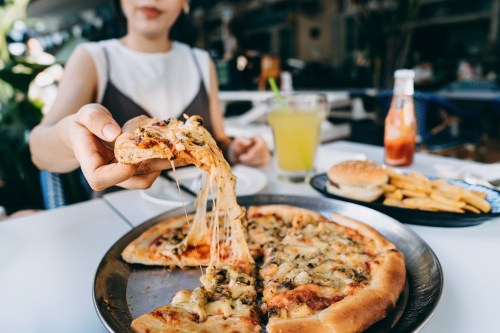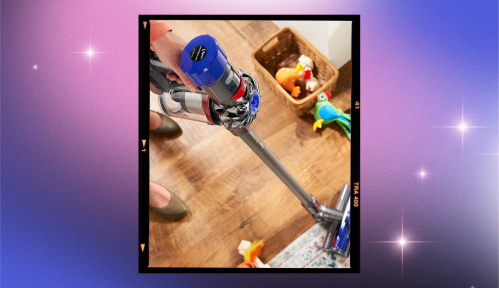As of 2019, over 318,000 health apps were available for download on app stores worldwide. Of the 200 (yes, 200) apps entering the category each day, many zero in on nutrition as the way to build a healthier life. “Anti-diet app” Wellory joined the space in late August with the mission of making personalized nutrition accessible to more people than before, but some dietitians who practice the anti-diet philosophy still doubt that any app can truly encompass the anti-diet ethos.
Experts in This Article
registered dietitian, certified intuitive eating counselor, and author of Unapologetic Eating: Make Peace with Food and Transform Your Life
an intuitive eating coach, anti-diet dietitian
registered dietitian nutritionist, pediatric dietitian, author, and founder of Solve Picky Eating
If you’re brand-new to the burgeoning field of nutrition known as anti-diet dietetics, Alissa Rumsey, RD, certified intuitive counselor and anti-diet dietitian, says you can think about the mindset as a countermovement against diet culture, the system of beliefs that conflates body size with health and worth, promotes weight loss, and praises certain foods while demonizing others. “An anti-diet dietitian is someone who is weight inclusive and whose goal is to really help you turn inwards versus focusing on external guidance [with your eating habits],” says Rumsey. Rather than focusing on macros, ingredient labels, or calories, an anti-diet approach teaches you to become an intuitive eater by rejecting diet culture and seeking out behaviors that will be healthful to you outside of that model.
Intuitive eating is one of the cornerstones of the anti-diet movement. Here’s what it entails:
To be clear, the vast majority of nutrition and food-tracking apps on the market wouldn’t consider themselves to be anti-diet. Noom calls itself a “lasting weight loss” program, Bellabeat labels itself an app for women’s weight loss, and MyFitnessPal allows you to set goals around losing weight or lowering your BMI. (Well+Good’s parent company owns a nutrition app called MyPlate, which helps people count calories, plan meals, and find healthy recipes.) These apps can be a useful tool for many people who want to eat healthily but don’t necessarily ascribe to the anti-diet philosophy. “I use a non-diet approach and don’t recommend the use of dieting apps in my practice. However, I have seen some adults benefit from their own use of the food-tracking function in apps like MyFitnessPal as a way to become more aware of food choices and learn about which nutrients and ingredients are in certain foods,” says Malina Malkani, RDN, creator of Solve Picky Eating.
However, Wellory’s entrance into the world of nutrition apps, given that it explicitly positions itself as anti-diet, presents an intriguing opportunity to consider if downloading any nutrition app is compatible with the anti-diet philosophy. For Rumsey and anti-diet dietitian and 2020 Well+Good Changemaker Christy Harrison, RD, MPH, the answer is almost always no.
For starters, the north star of anti-diet eating is to listen to yourself and your own internal cues, says Rumsey. Anti-diet dietitians are there to teach you how to tap into your own tastes, feelings, and mentalities; they won’t tell you, for example, to only eat X amount of sugar or incorporate a certain amount of fiber into your diet. “When we’re tracking and relying on an app to tell us if we’re eating too much or that we’re eating ‘not the right’ foods, that’s, again, pulling us outside of our own body,” says Rumsey. For people who are trying to maintain an anti-diet mindset, she worries that the focus on external numbers and stats common in nutrition apps can make it harder for them to listen to their own bodies.
Rumsey adds that the intention around food tracking (and related app use) often conflicts with being truly anti-diet. “I think my first question [for anyone who wants to download a nutrition app] would be, ‘Why does this person feel like they want to keep track of things? What’s the motivation and the intention behind it?'” she says. Often, people’s motivations for tracking nutrition can be fueled (consciously or unconsciously) by a desire to lose weight or look a certain way, she says—which is antithetical to an anti-diet mentality.
“I can’t imagine an app, honestly, that would be fully, fully anti-diet,” Harrison says, unless it wasn’t focused on food tracking and instead provided anti-diet affirmations or other features. Most nutrition apps don’t do this, which is why she typically never recommends them to her clients. The exception: Recovery Record or Recovery Warriors, which are designed specifically for those in eating disorder recovery. (And even then, it’s a case-by-case basis.)
Thus, Harrison and Rumsey wouldn’t necessarily qualify any nutrition or food-tracking app as anti-diet—Wellory included. For example, under the “What’s important to you?” question in its entrance survey, Wellory lists “weight loss” among its potential options. This is in direct conflict with the fact that anti-diet dietitians never set weight loss as a goal. But Emily Hochman, the founder of Wellory, sees it a bit differently. “While weight loss is still an entry point to Wellory, we view it purely as extrinsic motivation. And it’s important that we understand all of a new client’s motivations so we can help unlock their more intrinsic motivations,” says Hochman.
Hochman feels confident that working with Wellory’s slew of dietitians will naturally result in an anti-diet mentality for the app user down the line. “Every client comes to Wellory with their own challenges, preferences, and routines. Our job is to meet you where you already are and take time to figure out what really works for you,” she says.
While food-tracking apps aren’t beloved by the anti-diet dietitians interviewed for this article, Rumsey adds that, under the right circumstances, she may recommend a client journal about how their eating choices make them feel throughout the day. But again, the intention behind the practice really matters. “I do think that journaling can be really helpful when it’s done in a more open-ended way‚ so not focused on calories or the amount of food you’re eating, but more about, ‘Did this food feel satisfying? What were your energy levels like?’ Reflection prompts to get you to check in with your own body,” she says.
The bottom line: The utility of nutrition apps really depends upon the intent of the person using them. For someone who’s seeking nutritional guidance for weight management, better sleep, or improved energy levels, then an app might be the right choice. Within the anti-diet framework, however, you’ll be hard-pressed to find a dietitian who recommends one.
Oh hi! You look like someone who loves free workouts, discounts for cult-fave wellness brands, and exclusive Well+Good content. Sign up for Well+, our online community of wellness insiders, and unlock your rewards instantly.
Sign Up for Our Daily Newsletter
Get all the latest in wellness, trends, food, fitness, beauty, and more delivered right to your inbox.
Got it, you've been added to our email list.











